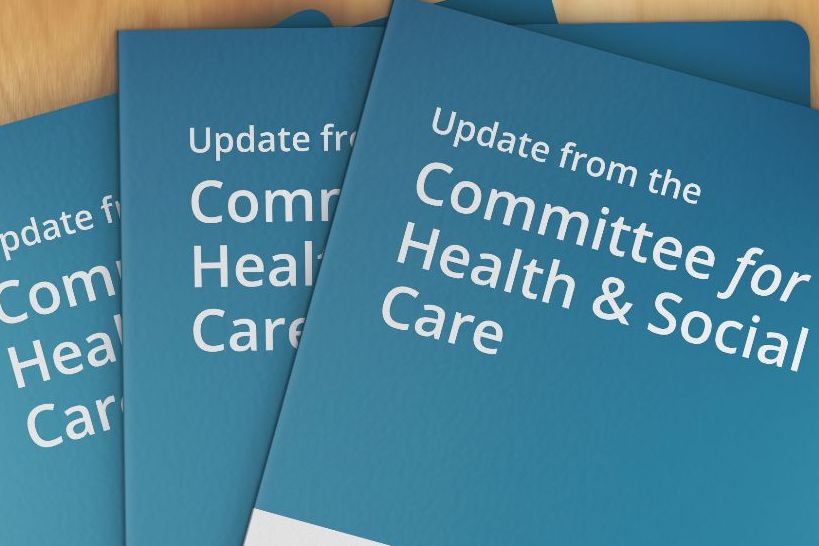Transform Drug Policy Foundation has welcomed drug reform proposals made by the health and social care committee – for some drug offences to be decriminalised and to treat addiction as a health rather than criminal issue, in order to reduce drug-related deaths – but says that the recommendations do not go far enough.
The cross-party committee said the state’s present punitive drug laws are “clearly failing”. In July, the Office for National Statistics (ONS) reported that 4,359 deaths from drug poisoning were recorded in England and Wales in 2018, the highest since records began in 1993. Scotland’s drug-related death toll also hit a record high of 1,187, putting the country on a par with the US in per capita terms.
The committee’s report calls for:
- a consultation on decriminalisation
- drug possession for personal use to be treated as a civil rather than a criminal matter
- sufficient funding for alternative approaches, such as a pilot of drug consumption rooms – supervised healthcare facilities where users can take drugs in safer conditions.
It also urges the government to look at the system in Portugal, where the decriminalisation of possession of drugs has reduced deaths and addictions significantly and saved money for the criminal justice system.
Committee chair Sarah Wollaston, of the Liberal Democrats, said decriminalisation alone would not be sufficient and that there needed to be a “radical upgrade in treatment and holistic care for those who are dependent on drugs, and this should begin without delay”.
She added: “Every drug death should be regarded as preventable and yet across the UK, the number of drugs-related deaths continues to rise to the scale of a public health emergency.
“Recommendations put forward in this report propose changes to drugs policy that are desperately needed to prevent thousands of deaths. Avoidable drug deaths are increasing year on year across the UK, but there has been a failure to act on the evidence.”
Bud & Tender CBD Oil – Use UKCSC10 to get 10% off
Writing for politics.co.uk, Transform CEO James Nichols said, “We applaud the committee for clearly supporting the decriminalisation of drug possession for personal use” and for “going further than that” by recognising that “the entire framing of drug policy is misguided”.
“The committee’s recommendations on treatment are, to anyone who follows this debate, painfully familiar. We need better commissioning, less retendering, and much more investment. We also need to move away from the disastrous insistence that nothing short of total abstinence should be viewed as success.”
But he said the report “doesn’t go far enough”, adding: “Decriminalisation is essential in moving drug policy away from the simplistic, ineffective and often prejudicial approach we have today. Ultimately, though, we need to bring the whole market under legal regulation in order to really get drugs under control and reduce the violence and exploitation that prohibition creates.”
The committee said that it did not “did not specifically examine the evidence relating to the legalisation of currently illicit drugs”, which Nichols called “a missed opportunity – especially as the report is so clear in identifying the ways in which the illegality of drugs only makes things worse”.
Prof David Nutt, the government’s former chief drug misuse adviser who was sacked a decade ago for saying that ecstasy and LSD were less dangerous than alcohol, said: “This is not the first time parliamentary committees have recommended major changes to the drug and alcohol laws. Let’s hope that this one is the last, and that the government take heed of this report.”
Nutt, now the director of the neuropsychopharmacology unit in the division of brain sciences at Imperial College London, added: “For this to happen the government must accept the vast body of evidence that they have ignored for decades and make the recommended changes. It is now time to take decision-making on drugs out of petty party politics and into health.”
But in typically flippant and callous fashion, a government spokesperson said it had no plans for decriminalisation: “The decriminalisation of drug possession in the UK would not eliminate the crime committed by the illicit trade, nor would it address the harms associated with drug dependence and the misery that this can cause to families and communities.”
The health and social care committee consists of: Dr Sarah Wollaston (Chair) (Liberal Democrat), Luciana Berger (Liberal Democrat) Ben Bradshaw (Labour), Rosie Cooper (Labour), Angela Crawley (Scottish National Party), Diana Johnson (Labour), Johnny Mercer (Conservative), Anne Marie Morris (Conservative) Andrew Selous (Conservative) Derek Thomas (Conservative), Dr Paul Williams (Labour).




